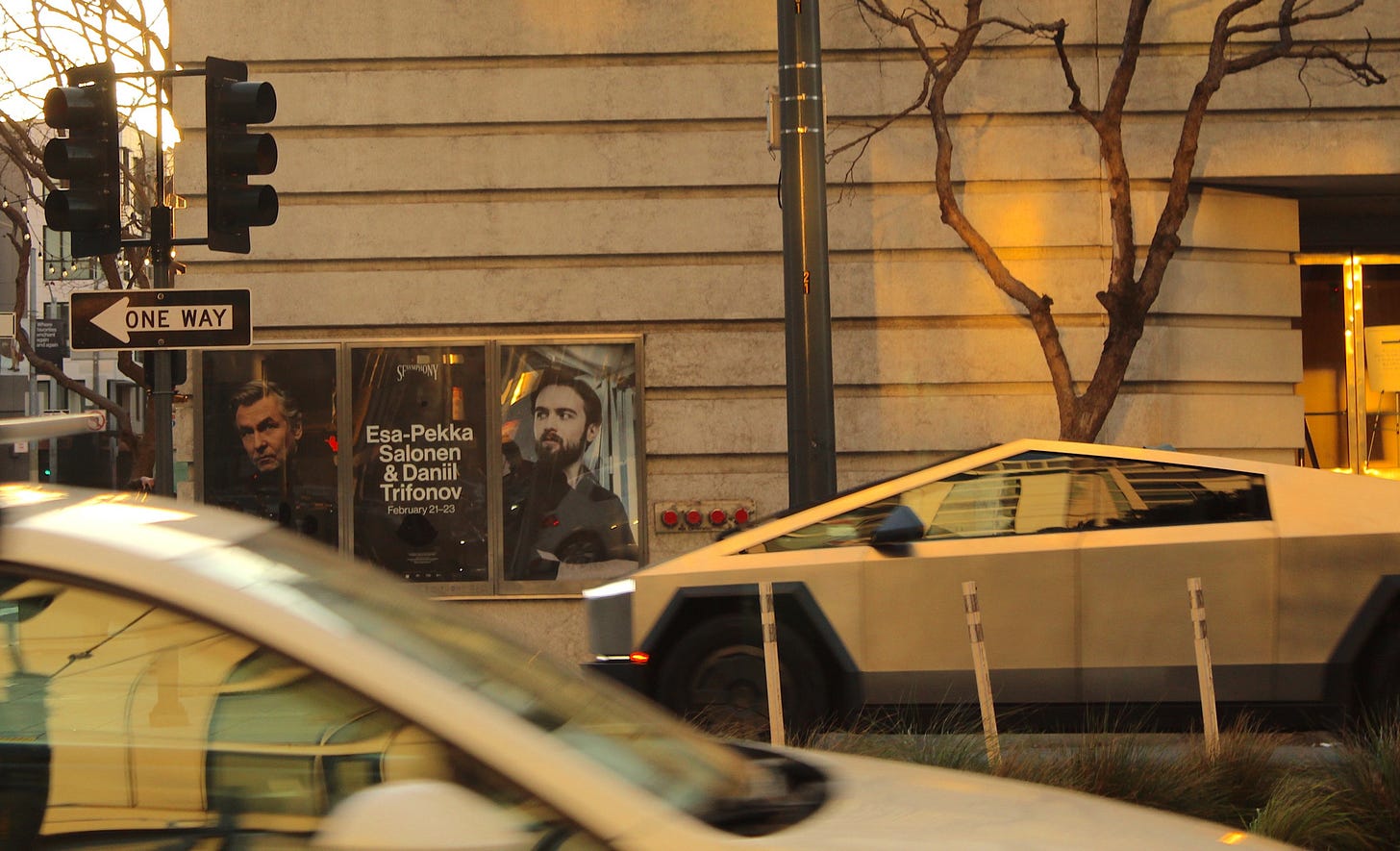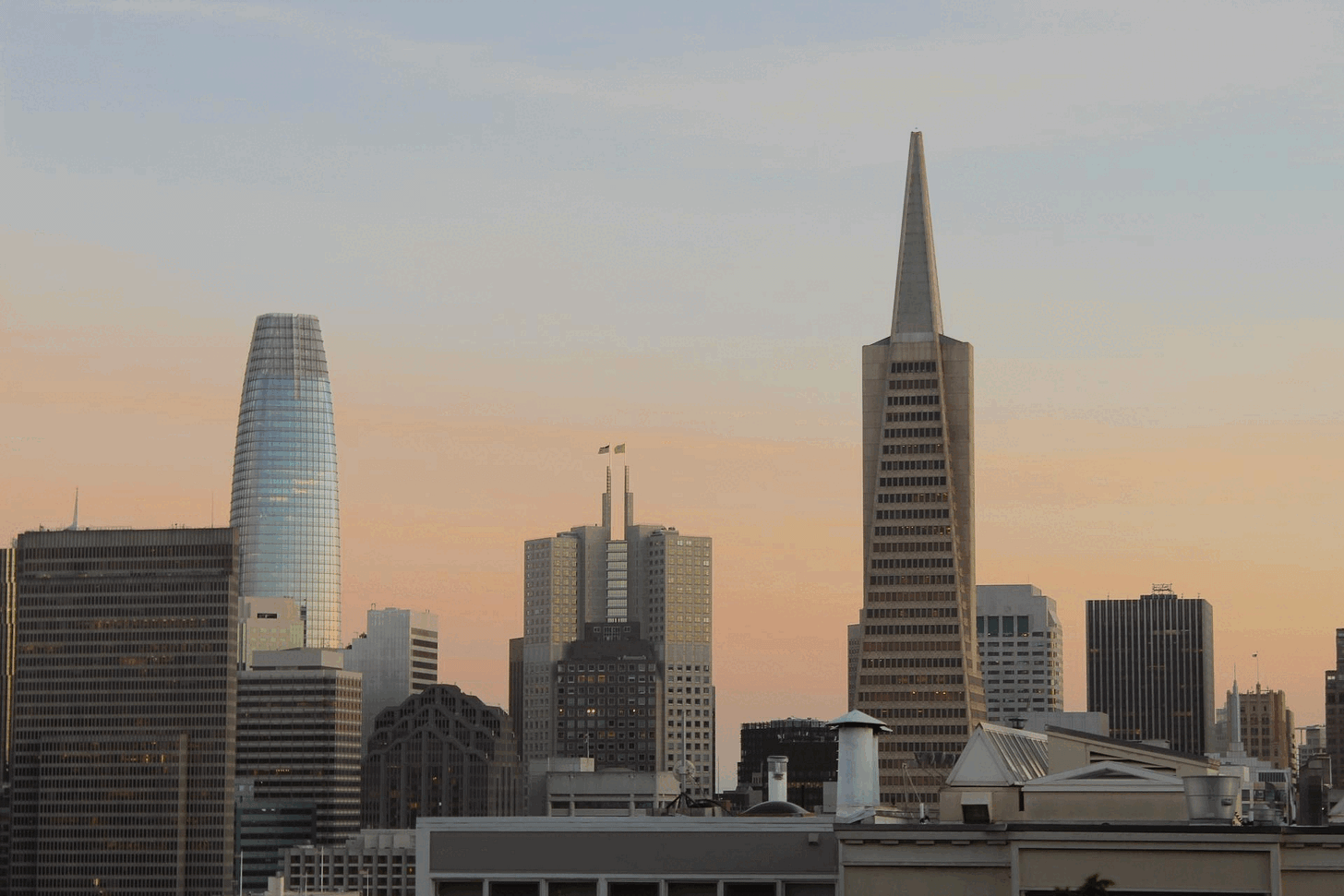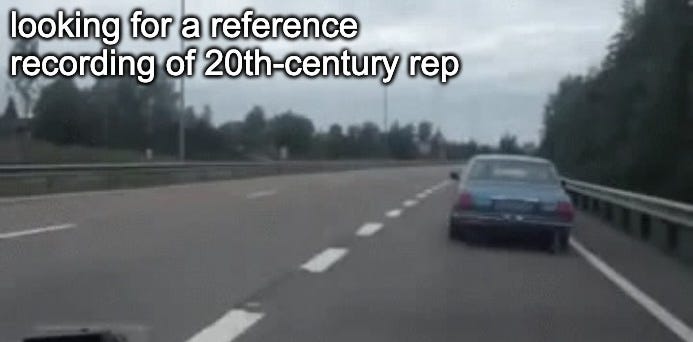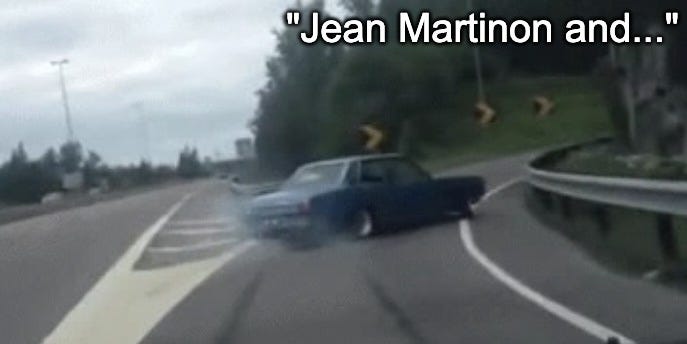Negative Love
Writing about hometown heartbreak for VAN
Happy (?) June.
All week, I’ve been humbled and heartbroken by the daring responses to ICE raids across the country. Chicago is no exception: A recent mass arrest targeted individuals showing up to what they thought was a routine court hearing, a few blocks south of my mom’s apartment in South Loop. Everyday folks, and even city council members, appeared to resist the federal agents.
The Grant Park Music Festival opened last night. Every time the drum roll heralds the national anthem, I debate whether to stand. Yesterday’s decision gave me special pause. I ultimately did, thinking of those individuals. I thought of what it meant for a flag to represent a hope, not a reality. I thought of it as a commitment to our neighbors, especially from those of us who have the privilege and platform to make a difference.
I thought of it as pledging to stay and fight like hell.
The center cannot hold
Today, VAN Magazine published a piece I’ve been working on for the better part of a year. It’s about the San Francisco Symphony, an ensemble that still means the world to me. I was born in the Bay Area in 1995, the same year Michael Tilson Thomas began his tenure as the music director. I lived there until leaving for Chicago in 2014, for college.
Despite my decade away, no other place, and no other orchestra, has more profoundly informed the way I think about music. As a teenager, I heard James Ehnes play the Barber Violin Concerto under MTT’s baton, only to leave a convert to George Antheil. The orchestra also introduced me to Mahler, laying the groundwork for my visit to last month’s Mahler Fest in a big way. And back when I still felt as though classical music couldn’t possibly be “for” me, Keeping Score, the Symphony’s public television series, invited me inside its elusive universe. Each episode, focusing on a piece in the standard repertoire, hit home the hard work and humanity that went into an orchestra concert.
Take its pilot, on Tchaikovsky’s Fourth. As a young string player, I had no idea hours of reed whittling went into Bill Bennett’s heart-melting oboe soliloquy in the second movement. I related to piccolo player Cathy Payne, who admitted that, yes, she does get nervous before her solo in the Scherzo. And who knew musicians sometimes used Davies’ locker rooms not just to freshen up, but to soak timpani skins?
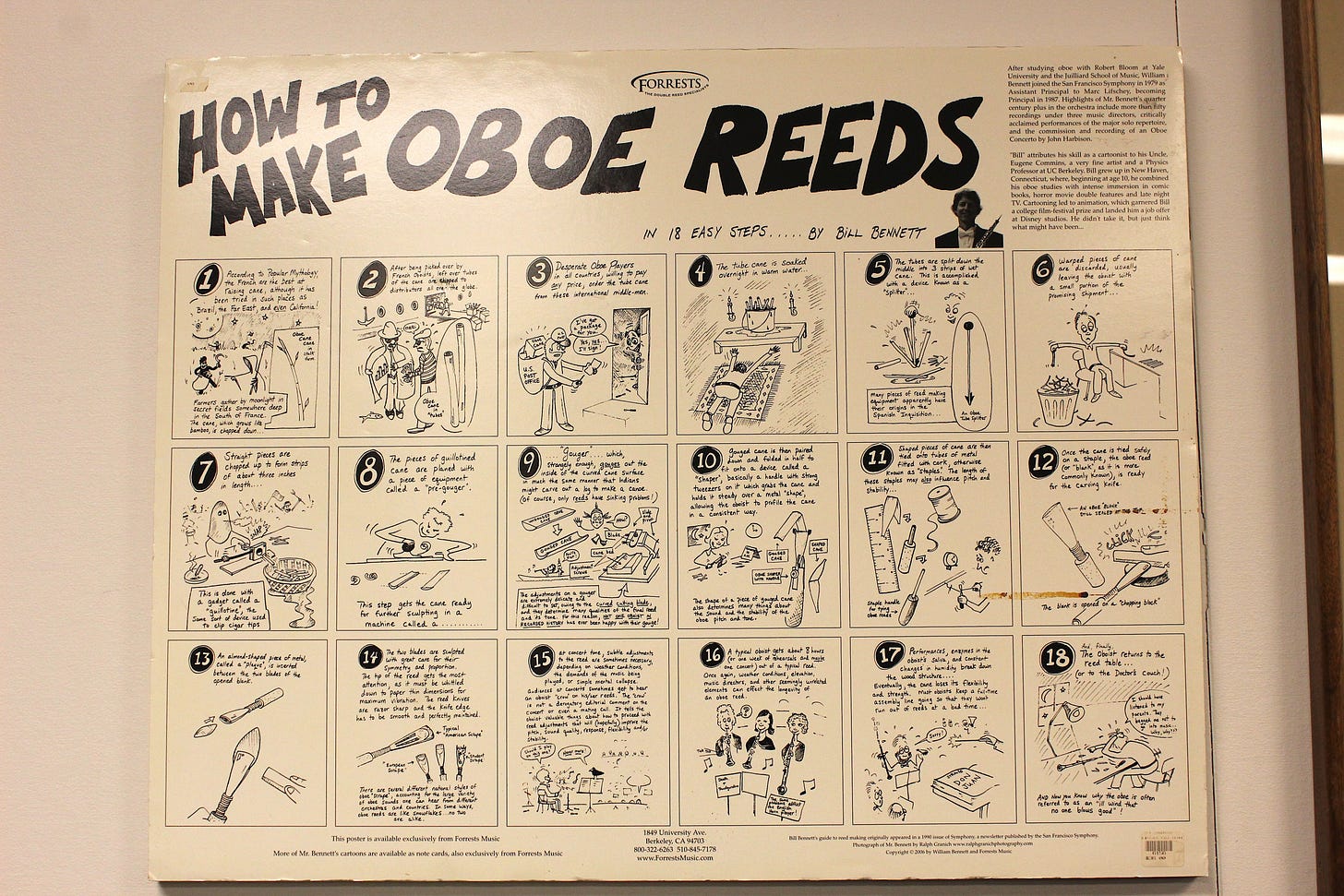
So, while I know and love the San Francisco Symphony, I’ve never reported on it—until now. Because I pursued this story over the course of the 2024/25 season, while labor negotiations between orchestra members and management were ongoing, musician interactions were closely controlled. Interviews, for example, were coordinated through a PR firm contracted by the musicians’ union local. As for the symphony’s current management, they canceled an interview with me just two days before I was supposed to fly out to San Francisco, mainly for said interview. Ain’t that just the way!
The story features a chorus of voices, some of which were shortened or cut so this jetliner could lift off. (Many thanks to pilots/editors Hugh Morris and Jeff Arlo Brown, whose suggestions were always spot-on.) Like San Francisco Opera general director Matthew Shilvock, who told me that, despite one of its most successful years on record, the company is still facing a $15 million shortfall—a sobering taste of, in his words, the “tale of two realities” facing performing arts institutions out of the pandemic. Or symphony cellist Barbara Bogatin, who offered a touching account of Tilson Thomas singing along to On the Town’s “Some Other Time” at his last concert with the San Franciscans in April.
This has been one of the toughest stories I’ve reported. It’s not just because current SFS management is, by far, the most willfully opaque of any organization whose labor negotiations I’ve covered to date. It’s because it’s been personal, and because I still love this orchestra fiercely. There was a brief moment, right when I received the assignment for this story, when a job opportunity—well, let’s say “job possibility,” and a remote one, at that—opened up back in the Bay Area. It never firmed up, nor did I have much expectation that it ever would. But I was amazed by how deeply I considered it, and how excited that consideration made me. As I wrote months ago on this very blog, San Francisco is home, against my better judgment. I’ve broken down once or twice, thinking about how my wife will never know the San Francisco of the early–mid 2000s, a city at once magical and impossible.
But I’m also grateful. In grappling with my own complicated feelings about the Bay Area, I’ve been freed, once and for all, to say goodbye.
Where has the time all gone to?
Haven't done half the things we want to
Oh well, we'll catch up some other time…
Filed under “absolutely not”
Work roundup 🤠
Good and bad news out of the CSO: Donald Palumbo is in, filling the long-vacant chorus director void; MusicNOW, its adventurous yet approachable new music series, is out. (Chicago Tribune)
Which Köchel number is this? From now through July 2, catch totally improvised mini-operas in the style of Mozart, hosted by Chicago Fringe Opera at Borelli’s Pizzeria in Lincoln Square. (Chicago Tribune)
To say touring can be expensive and inefficient is the understatement of the century. The Midwest Jazz Collective wants to make it easier. (DownBeat)
Chicago Opera Theater premieres She Who Dared, its strongest new work since The Life and Death(s) of Alan Turing. (Chicago Tribune)
Intuit Art Museum shaves a few words off its name and reopens in West Town. (Chicago Tribune)
Summer highlights collated for the Tribune, in classical, jazz and museums.
Performances ahoy! 🗓️
June 12–14: Esteban Batallán makes his CSO soloist debut; Riccardo Muti conducts (7:30 p.m., Symphony Center)
June 13: Oscar Peterson’s Africa Suite (8 p.m., Symphony Center)
June 13 & 14: Christopher Bell conducts the Grant Park Festival Orchestra and Chorus in a program including Lili Boulanger’s Psalm 24 (Fri. 6:30 p.m. and Sat. 7:30 p.m., Jay Pritzker Pavilion)
June 15: Hot Second play originals, transcriptions and more (8:30 p.m., Constellation)
June 18: Giancarlo Guerrero debuts as Grant Park music director, with Hailstork, Bernstein and Mendelssohn (6:30 p.m., Jay Pritzker Pavilion)
June 19–24: Muti conducts Verdi’s Requiem (various times, Symphony Center)
June 20 & 21: Pacho Flores solos at Grant Park Music Festival, also conducted by Guerrero (Fri. 6:30 p.m. and Sat. 7:30 p.m., Jay Pritzker Pavilion)
June 22: Isidore Quartet at Ravinia (1:30 p.m., Bennett Gordon Hall)
June 22: Arooj Aftab (7 p.m., Old Town School of Folk Music)
June 25: Isidore Quartet with Juilliard Quartet at Ravinia (7:30 p.m., Martin Theatre)
June 25: Chicago Jazz Philharmonic tribute to Hazel Scott (5–9 p.m., Logan Center for the Arts)
June 26–29: Camille Thurman & the Darrell Green Quartet (various times, Jazz Showcase)
June 27: Wadada Leo Smith & Vijay Iyer (8:30 p.m., Constellation)
June 27 & 29: Pagliacci with the Opera Festival of Chicago (Fri. 7:30 p.m. and Sun. 2 p.m., North Shore Center for the Performing Arts)
June 27–July 1: Artaserse at Haymarket Opera (various times, Holtschneider Performance Center at DePaul University)
June 28: Third Coast Percussion’s RhythmFest (12–10 p.m., Epiphany Center for the Arts)
June 29: Sun Ra Arkestra (7 p.m., The Promontory)
Drop the Needle
Though I’m pretty much in the pro–Klaus Mäkelä camp as far as things go, I’ve found him as uneven on record as the next critic. His recent La valse with the Orchestre de Paris is a thing of buoyancy and elegance—but I’m not convinced that’s the point.
I much prefer an earlier, grittier Orchestre de Paris recording under Jean Martinon, whose unceremoniously short tenure at the CSO is one of the organization’s great tragedies. (That said, his poor fortunes there emphasize an industry truism, one that people seem to forget wherever Mäkelä is concerned: The conductor who works like a dream with one orchestra may be divisive elsewhere.) The 1975 Martinon/Orchestre de Paris La valse is as close to my ideal for the hallucinogenic work as possible: parodied daintiness, drunken, woozy strings, a cataclysm in triple time.
I felt the same last week while cycling through recordings of Prokofiev 7, way too rarely heard in the concert hall. (The CSO’s last spin on it was in 1987!) After what was, to me, an underwhelming account under Sir Mark Elder, I found myself returning to—surprise, surprise!—Martinon’s recording with the Orchestre National de France. It doesn’t scratch every itch for me, but its big-heartedness, grotesquerie, and all the emotional terrain in between gets closer than others I’ve heard so far.


